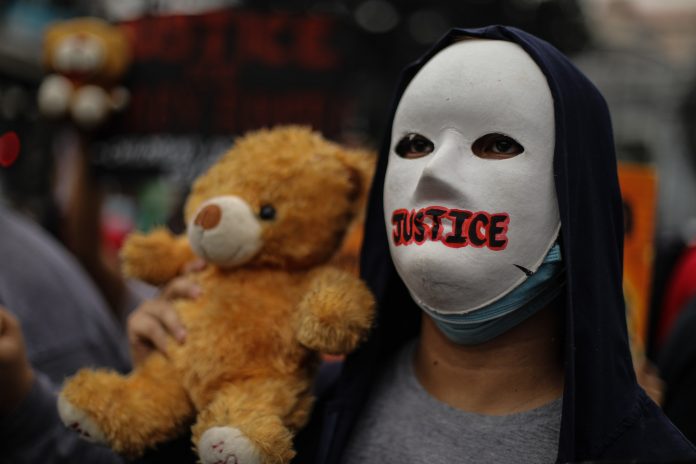Hundreds of activists braved a drizzly Manila morning to hold a demonstration outside the presidential palace in the Philippine capital on Thursday, International Human Rights Day.
The protesters demanded accountability from the government for alleged human rights abuses committed by state agents against activists, workers, farmers and poor urban and rural dwellers.
The Philippine Alliance of Human Rights Advocates said “accountability forms an intrinsic part of rights-based governance because it addresses injustice.”
“Accountability ensures that violators will face the full extent of the law; it reduces the possibility of abuse, corruption and double standard practices,” the group said in a statement.
It added that accountability builds trust in systems and encourages people’s engagement, which strengthens democracy.
The human rights group demanded accountability for people who experienced hunger, the unemployed, those who dropped out of schools, and the victims of the “war on drugs.”
“Human rights must be at the core of recovery (from the coronavirus pandemic) if all is to recover better,” said the group.
“Otherwise, it will only be a recovery for the elite, the corporate giants and the powerful at the expense of the suffering majority,” it added.
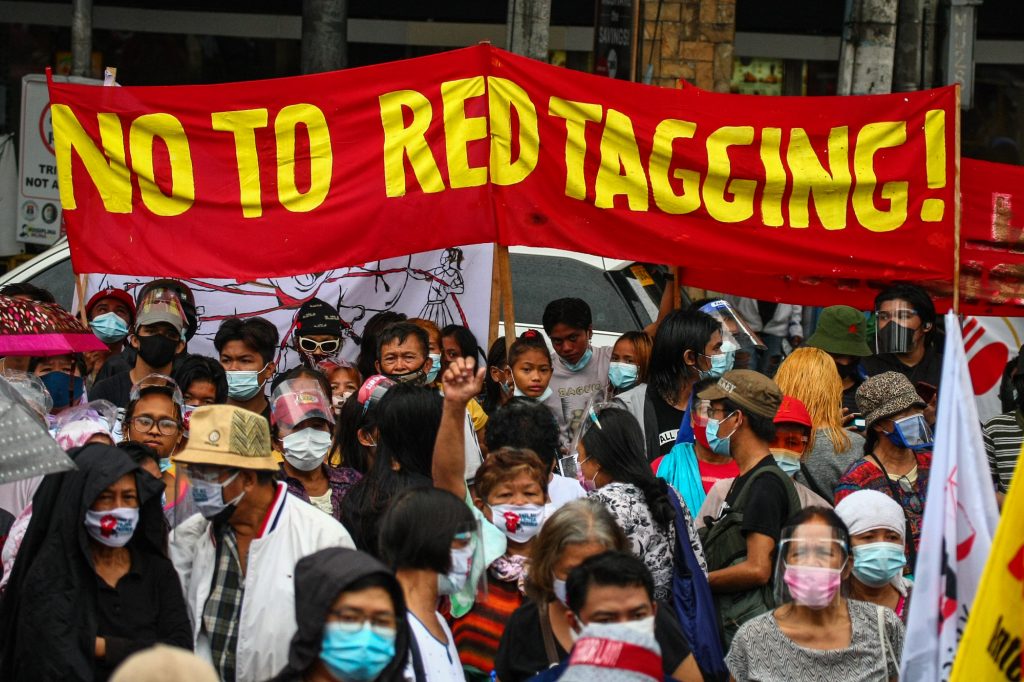
‘Repressed’ freedoms
Human rights group Karapatan accused the four-year-old administration of President Rodrigo Duterte of “plunging the country deeper and deeper into a rapidly deteriorating human rights crisis.”
On December 9, international watchdog Civicus downgraded the state of fundamental freedoms in the Philippines from “obstructed” to “repressed.”
The country has been “downgraded owing to its decline in fundamental freedoms” due to the reported vilification of activists and attacks on human rights defenders and journalists.
The passage of the Anti-Terror Act of 2020, which includes a broad definition of terrorism, gives law enforcers exhaustive powers and provides few safeguards against abuse, said the group.
The watchdog said the broad definition of terrorism “leaves [the law] open to exploitation by those seeking to silence dissent.”
The Philippine Anti-Terrorism Act of 2020, which amends the 2007 Human Security Act, adds the following as crimes: threatening, planning, training, facilitating, proposing, and inciting to terrorism.
The phrase “inciting to terrorism” worries human rights groups who said it involves free speech.
Government officials who want to suppress speeches, proclamations, banners, or writings of critics could use this new crime.
The law’s definition of terrorism is “broad and vague” enough that it could include expressions of dissent or criticism against the government, said law experts.
The new law also allows the surveillance, warrantless arrest, and detention of suspects for up to 24 days.
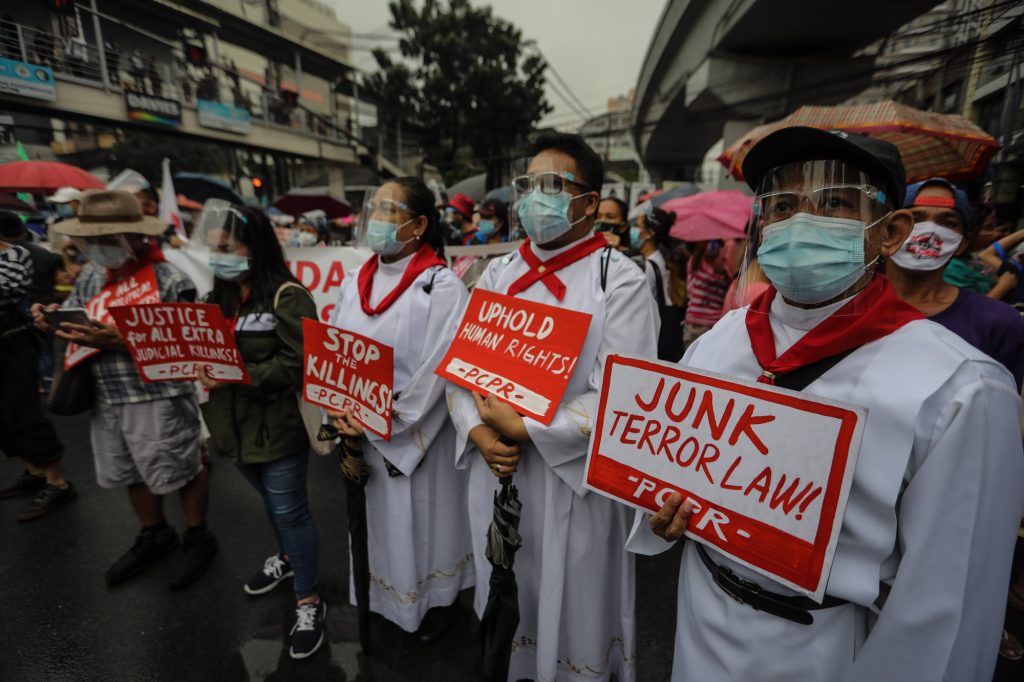
‘Dangerous country’
Bishop Gerardo Alminaza of San Carlos said that the Philippines has become a “dangerous country,” especially for human rights defenders.
“Attacks against human rights advocates continue,” said the prelate.
He cited the killing of Zara Alvarez, a church worker and human rights defender in Negros, on August 17 this year.
“She was previously red-tagged as terrorist by state forces,” said Bishop Alminaza, convener of the Church People – Workers Solidarity.
He said human rights defenders live a “grim reality” in the Philippines as they face “systemic and widespread attacks” for their work.
In 2018, the United Nations listed the Philippines as one of 38 countries where governments subject human rights defenders and activists to “an alarming and shameful level of harsh reprisals and intimidation.”
In a statement, the Church People – Workers Solidarity expressed hope that the “times of darkness and rampant human rights violations will rouse many” to defend the rights of the most vulnerable.
“May we continue to defend the defenseless and be the voice of the voiceless,” said the group.
“May we continue to show courage in the midst of persecution as we link arms with the broad masses in building a more just and humane society,” it added.
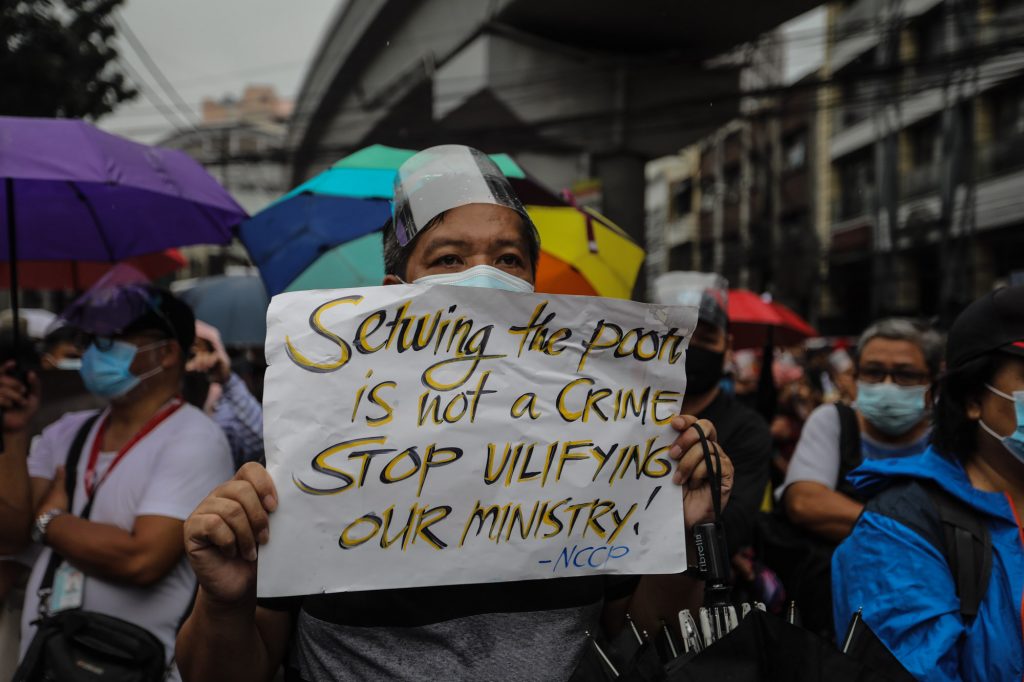
Stand for justice, stand for human rights
The National Council of Churches in the Philippines (NCCP) reminded Filipinos that as Christians they should “actively take part in defending human dignity.”
“To remain silent runs counter to what our faith and conscience demand, to do justice, to love kindness and to walk humbly with God,” said Bishop Reuel Norman Marigza, NCCP general secretary.
The Protestant council note that the pandemic has pushed many of the vulnerable sectors “to the fringes of society as toxic lockdowns were implemented.”
The church group said the government’s “militaristic response to the pandemic only brought devastating effects to the lives of the Filipino people.”
The NCCP also denounced the “intensifying vilification and red-tagging” of its members.
“Red tagging is real, but despite these attacks, we will continue to defend human rights,” said Bishop Marigza.
“Denouncing evils in our society and proclaiming and asserting Jesus’ promise of abundant life for all remains to be our fundamental task,” he said.
The Protestant bishop said the defense of human rights is “at the very core of our faith because of our belief in the sanctity of life and the need to protect human dignity that God bestowed on each of us.”
“Just as Jesus triumphed over death in order to proclaim God’s love, the churches will surely win against the attempts to malign our ministry and prophetic stance,” said Bishop Marigza.
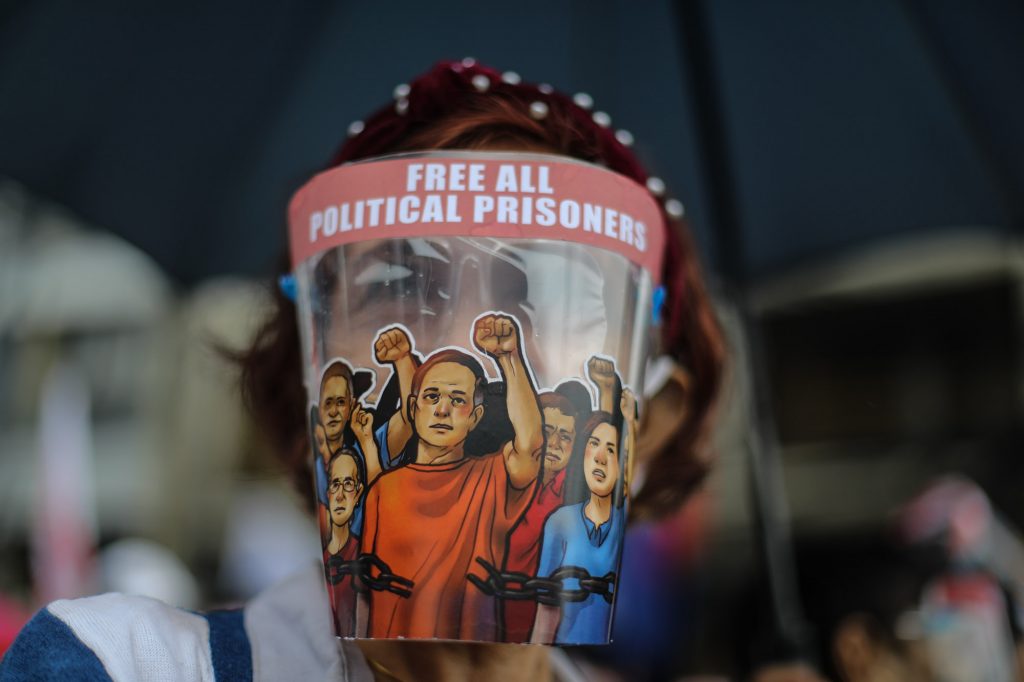
‘War on drugs’ during pandemic
Abuses of human rights have escalated even during the coronavirus pandemic, said Cristina Palabay, secretary general of Karapatan.
She said the killings of suspected drug users and peddlers, and even human rights defenders, “have only escalated” in the middle of the pandemic.
Karapatan has documented 353 victims of extrajudicial killings — of which 188 were human rights defenders — linked to the government’s counterinsurgency program since July 2016.
Based on government data, at least 5,942 alleged drug personalities have also been killed in the government’s “war on drugs.”
The figure, however, is significantly lower than the estimates made by human rights watchdogs who claimed that as many as 27,000 have died.
Karapatan called on the public to assert the struggle for justice and accountability for all victims of human rights violations.
“There is never any lockdown for people’s rights and our continuous struggle to defend and advance them—and it is in our collective action that we win this battle against tyranny and dictatorship,” it said.
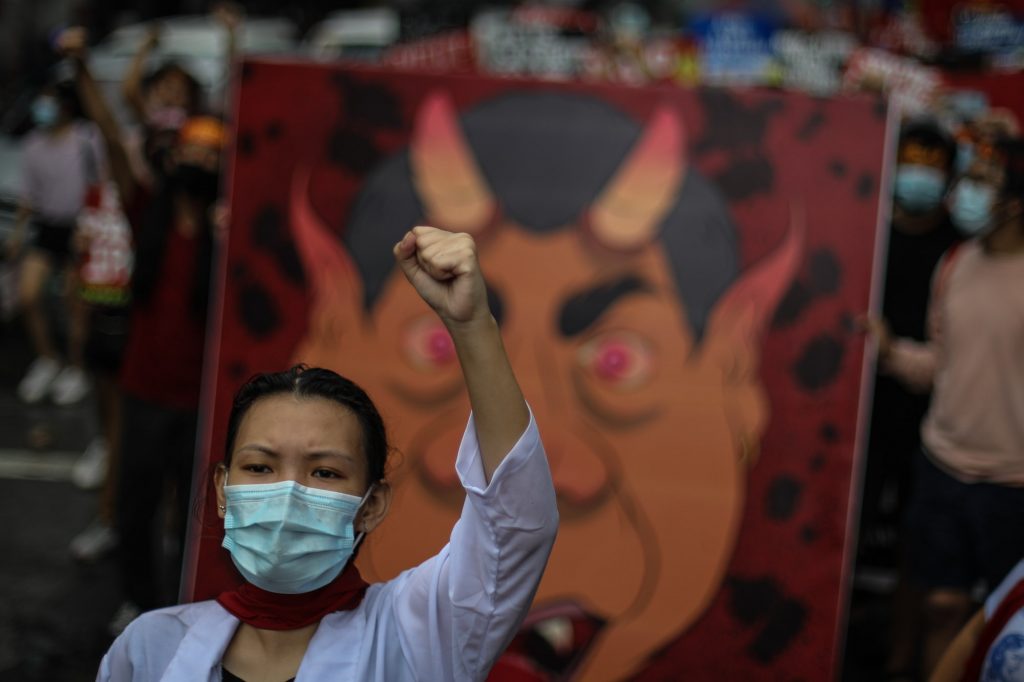
Government commitment
Days before the observance of International Human Rights Day, Duterte expressed his government’s commitment to prioritizing human rights as he called for an enhanced engagement in fostering a “healthy” human rights environment.
“I welcome this summit as an effective platform for the international community to enhance collaboration in the protection and promotion of human rights,” Duterte said in a pre-recorded message aired during the the Department of Justice’s Human Rights summit this week.
“I am proud that the Philippines is one of the few countries that signed many of the world’s core human rights treaties,” said the president.
“This affirms our serious commitment in honoring and fulfilling our treaty obligations and prioritizing the human rights agenda as a means to achieve our country’s sustainable development goals,” he added.
While he affirmed the country’s commitment to human rights, Duterte also recognized that the “work is far from over.”
“I urge everyone to strengthen the multi-sectoral engagement that would foster a healthy human rights environment for all,” said the president.
The International Human Rights Day is observed every year on December 10 to commemorate the day the United Nations General Assembly adopted, in 1948, the Universal Declaration of Human Rights.
The declaration sets out a broad range of fundamental rights and freedoms to which all are entitled without distinction based on nationality, place of residence, gender, national or ethnic origin, religion, language, or any other status.

